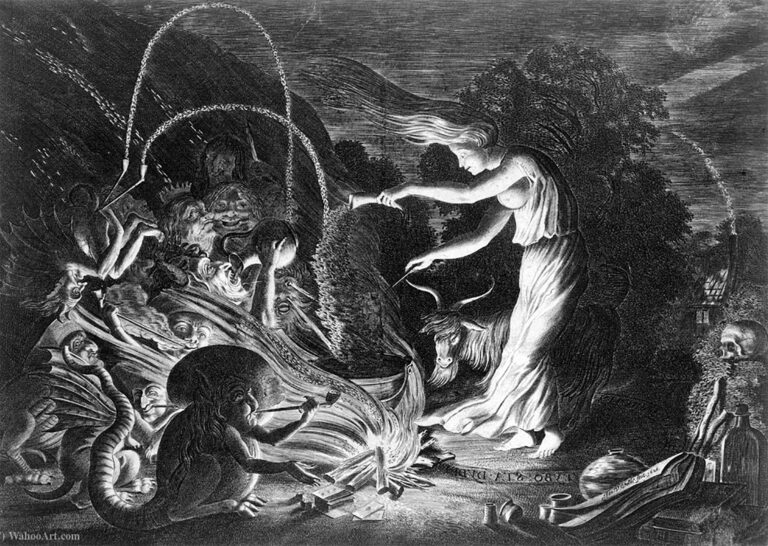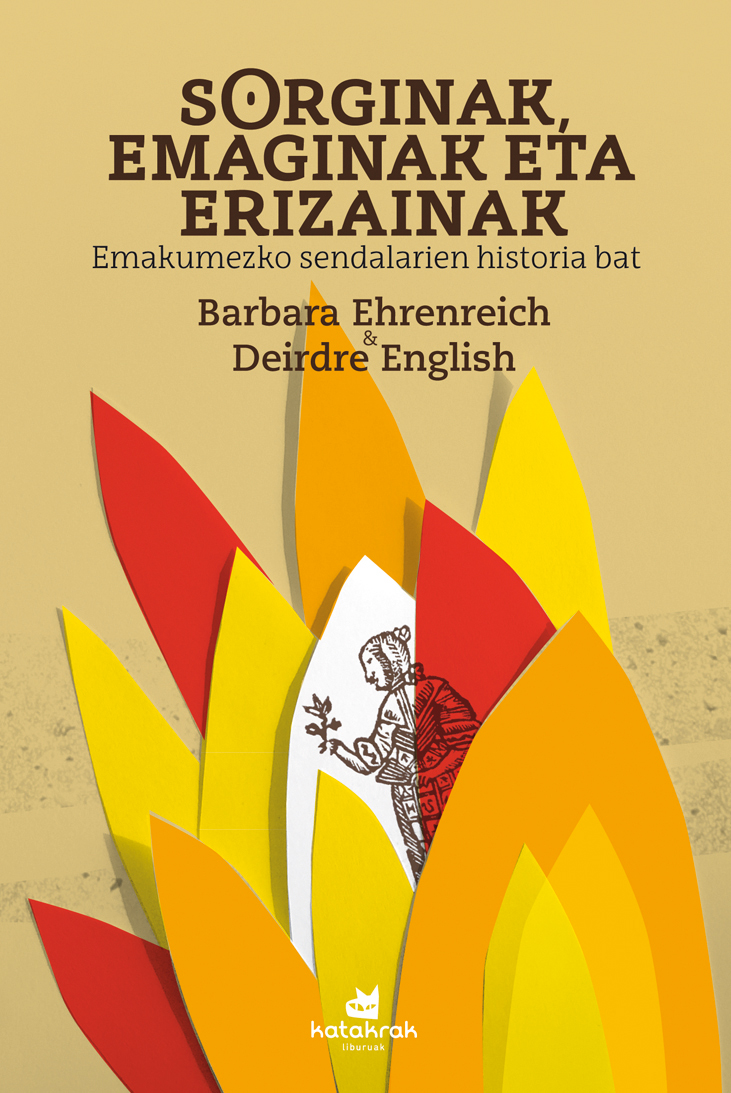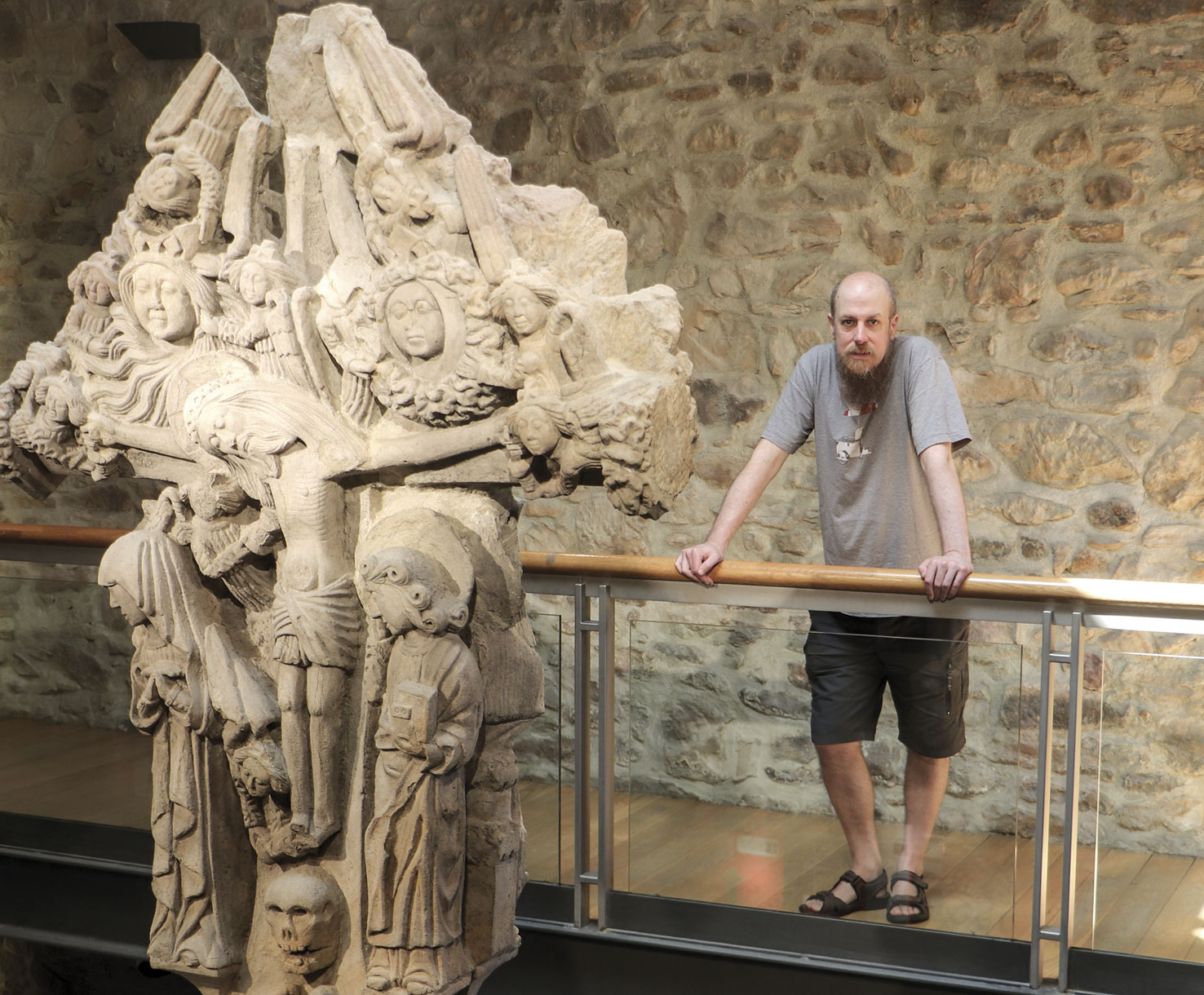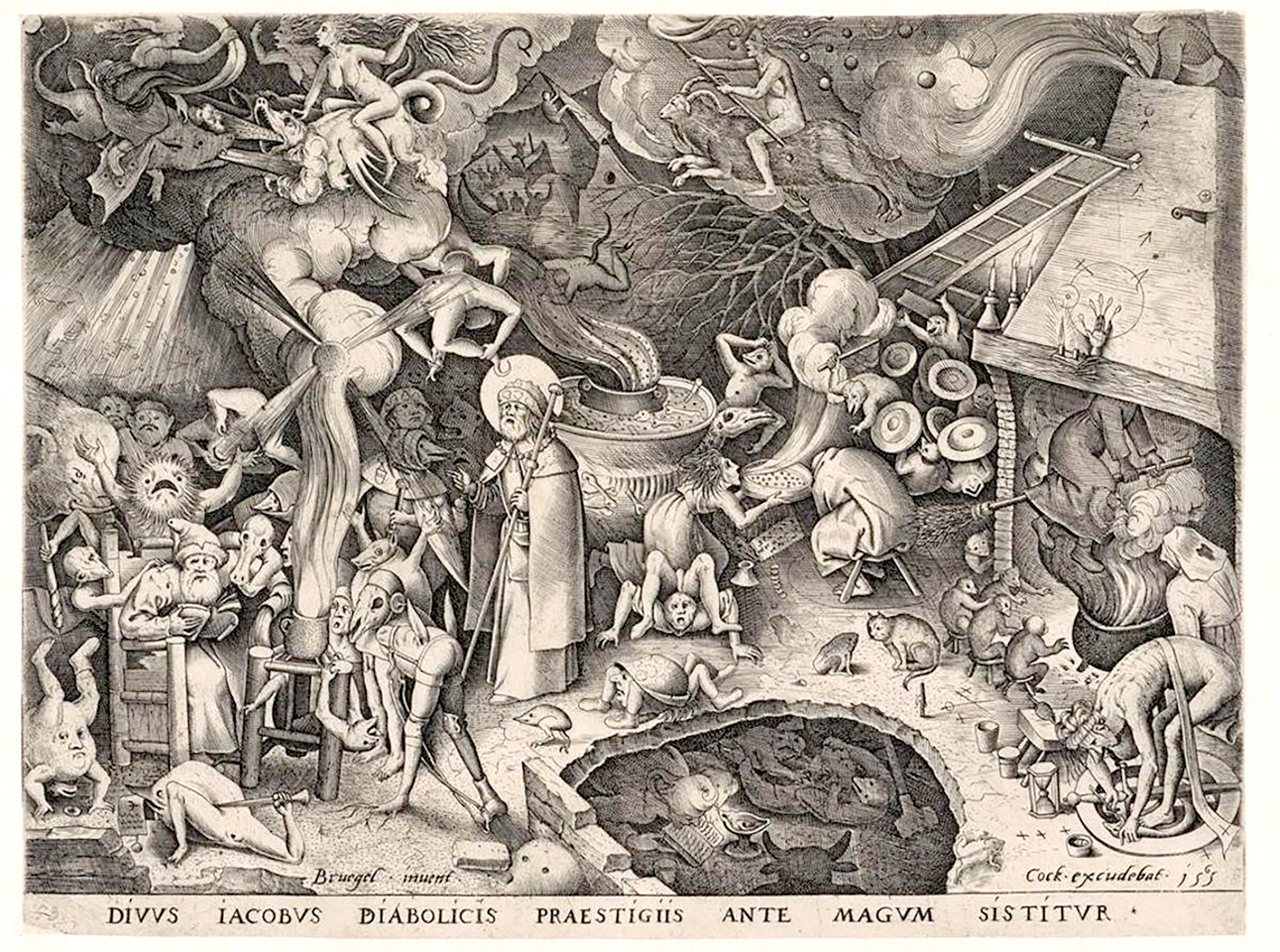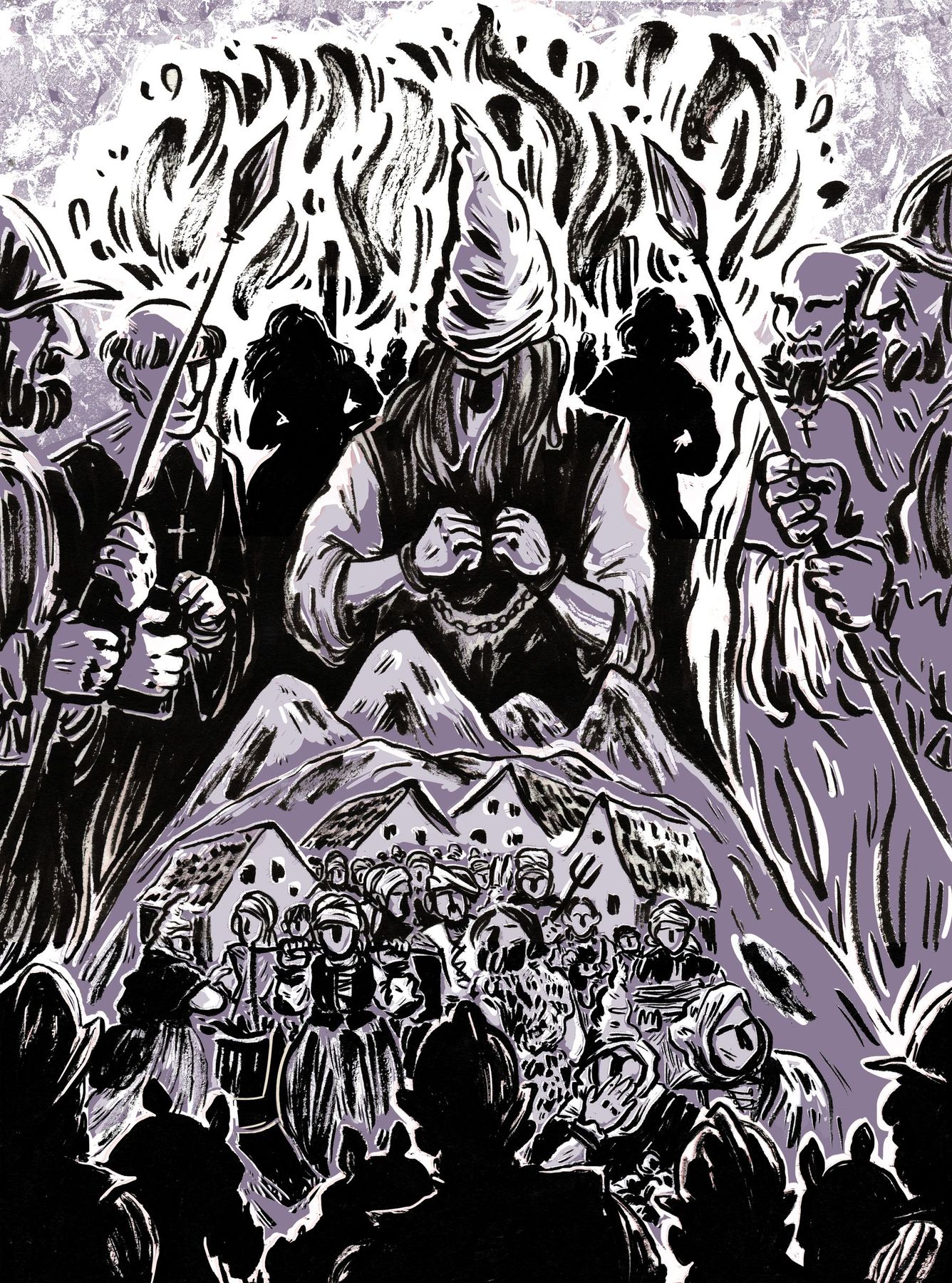- Witches! Open the exhibition at the Okendo Cultural Center of Donostia
- EmPoderArte International associations of women artists Bruges! presented its new exhibition (21 February) at the Okendo Cultural Centre. Through the works of 44 artists, they intend to denounce the feminicides and the machist violence that occurred in Europe between the 15th and 18th centuries. The exhibition will be available from 21 February until 17 April.

Among the attendees were the director of the Okendo House of Culture, Susana Bustero; the president of AIMA, Pepa Santamaría EmPoderArte; the curator and artist, Sara Beiztegi; and the Basque artist, Miren Atxaga, among others.
In the exhibition you can find all kinds of artistic disciplines: wall works, opleos, acrylics, photography, audiovisuals, sculptures… From the 15th to the 18th century, 250,000 women were persecuted, tortured and brutally murdered accused of witchcraft. Artists want to denounce it and, at the same time, they want to encourage people to reflect on it.
As Pepa Santamaría explained, this is an exhibition of great importance because it deals with a topical issue: “These murders against women show that we are still marked, we are still under a lot of burdens.”
It is said that these women accused of witchcraft were women who did not want to follow the capitalist and patriarchal system, who considered a risk because they had the power to decide whether they wanted to have children or not, and because they dominated the medicinal herbs. Faced with this system, women survived and have stressed that today women continue to be systematically persecuted.
A total of 44 artists have worked on the same conceptual framework. A basic bibliography (e.g. Caliban and Sorginak of Silvia Federici) has been used as a starting point for this purpose. Artists of all kinds have been gathered, some of them from teaching, and others are professionals from the art world.
A number of complementary events have been organised around the exhibition. Also hugs, guided tours and round tables.
The artists who have participated are listed below: Amalfy Fuenmayor, Ana María Vaca, Asunción Bau, Caroline Krabbe, Cristina Gutierrez Meurs, Dana Bonino, Ela Rabasco, Elisabet Roldán Rojo, Erica Landfors,Estefanía Ocampos, Esther Premio, Eva Riol Velola, Rojo Izares And guest artists: Andrea Abalia, Barbara Stammel, Itziar Insausti, Martina Dasnoy, Nisa Goiburu and Txaro Arrazola.
For a matter of work, I had to reread this wonderful book. A short book that brings together feminist theory, genealogy and history, and that will surely have a lot of criticism looking on the net and, surprise! I found one, which Irati Majuelo wrote in Berria.El book published... [+]
The Christian religion ended the knowledge, wisdom and self-management of witches, imposing thought and, therefore, a certain life. They were tortured, raped and killed. With the intention of moving these religious convictions to every corner of Europe, many citizens engaged in... [+]
Ezin zenbatu sorginen inguruan egindako liburu, film, erakusketa, hitzaldi eta souvenirrak Euskal Herrian. Baina gehienetan ohiko galderak baino ez dira iradokitzen, ea emakume horiek zer egiten zuten, ea benetan elkartzen ote ziren akelarrean, ea zer droga hartzen zuten, ea... [+]









